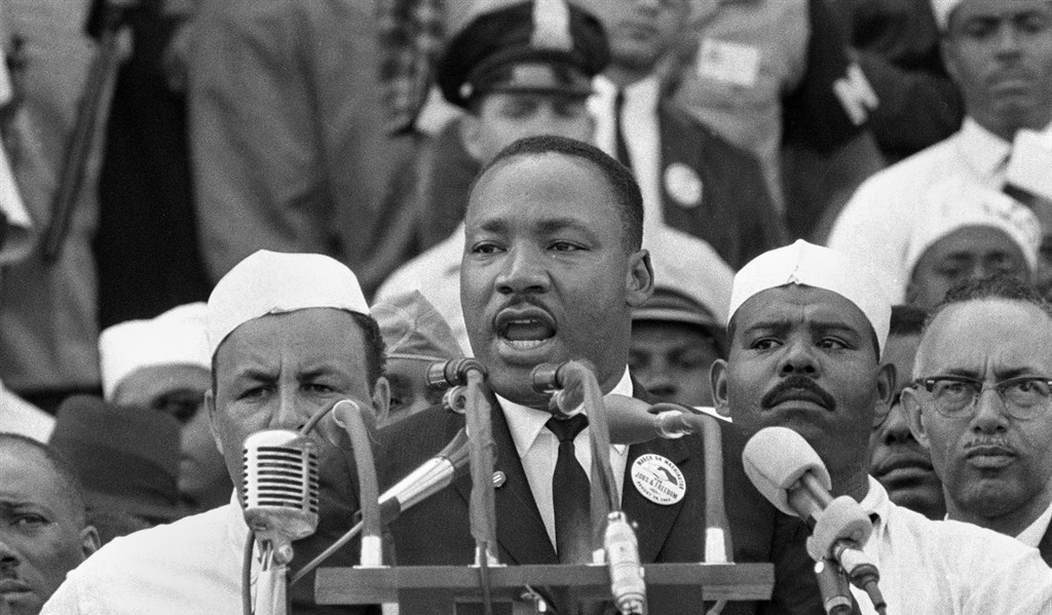Amid the celebration of the 50th anniversary of the March on Washington, one complaint became almost a refrain: What about economic justice?
After all, the official title of the event was the March on Washington for Jobs and Freedom.
The line "I have a dream that my four little children will one day live in a nation where they will be judged not by the color of their skin, but by the content of their character" resides in the rhetorical pantheon with "Four score and seven years ago" and "We the People of the United States, in order to form a more perfect union."
But in one of the fascinating ironies that make history so compelling, King didn't plan to use the "I have a dream" line. His prepared remarks were winding down when gospel singer Mahalia Jackson shouted to him, "Tell them about the dream, Martin. Tell them about the dream!" -- a passage she had heard from him previously.
Even after the march, A. Philip Randolph, the march's director, received more coverage than King. Randolph spoke of civil rights, too, of course. But he also emphasized more typical left-wing economic fare: "It falls to us to demand new forms of social planning, to create full employment and to put automation at the service of human needs, not at the service of profits."
The left-wing journalist Murray Kempton said of the march's overall message: "No expression one-tenth so radical has ever been seen or heard by so many Americans." Many on the left have felt frustrated that this agenda -- which King subscribed to wholeheartedly -- doesn't share the same moral and political stature as King's dream of a colorblind society.
The frustration is understandable, but it stems from a fundamental confusion. As countless commentators have long noted, the genius of King's appeal to an ideal of colorblindness was deeply patriotic, rooted in the foundational principles of the republic. The march was set in the year of the 100th anniversary of the Emancipation Proclamation, which King invoked: "But 100 years later, the Negro still is not free. One hundred years later, the life of the Negro is still sadly crippled by the manacles of segregation and the chains of discrimination."
Recommended
"In a sense," King continued, "we have come to our nation's capital to cash a check. When the architects of our republic wrote the magnificent words of the Constitution and the Declaration of Independence, they were signing a promissory note to which every American was to fall heir. This note was a promise that all men, yes, black men as well as white men, would be guaranteed the unalienable rights of life, liberty and the pursuit of happiness."
In the American context, these are universal appeals. King pleaded for the fulfillment of America's classically liberal revolution. At the core of that revolution was the concept of negative liberty -- being free from government-imposed oppression. That is why the Bill of Rights is framed in the negative or designed to restrict the power of government. "The Congress shall make no law" that abridges freedom of speech, assembly, etc.
This arrangement has never fully satisfied the left. The founding philosopher of American progressivism, John Dewey, argued for positive rights: We have the right to material things -- homes, jobs, education, health care, etc. Herbert Croly, the author of the progressive bible "The Promise of American Life," argued that the founding was unfinished and only by turning America into a European-style cradle-to-grave social democracy could our "promise" be fulfilled. Franklin D. Roosevelt tried to in effect replace the Bill of Rights with a new "economic bill of rights" along these lines. That was the intellectual tradition of Randolph and, to a significant degree, Barack Obama.
The problem is that, in America at least, appeals to social planning and guaranteed economic rights are not universal. They are, deservedly, controversial and contestable. They are all the more so when decoupled from the idea of colorblindness.
Which brings us to another compelling historical surprise. Conservatives, who were too often on the wrong side of civil rights in 1963, are champions of race neutrality, while King's self-appointed heirs are more inclined to champion the ideas that never spoke to the hearts of all Americans, or to mint new causes they assure us King would have cared deeply about had he lived. That's their prerogative, but they shouldn't be surprised when such efforts fail to capture the hearts and minds of all Americans.

























Join the conversation as a VIP Member